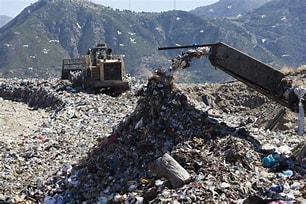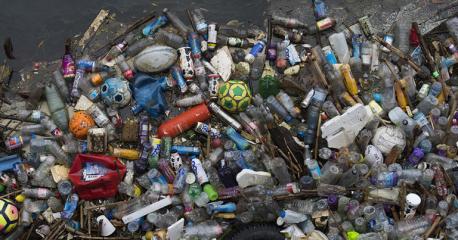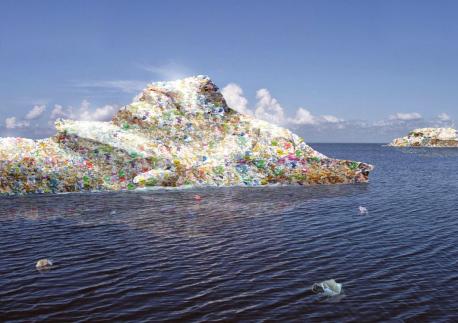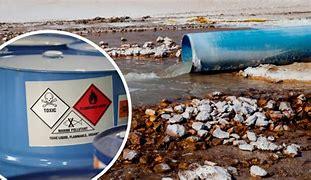Results: Plastic eating enzyme named FAST-PETase (functional, active, stable and tolerant PETase)
Published on 05/07/2022
A ‘pac-man’ protein that gobbles up plastic, breaking it down, could open the door to eliminating billions of tons of landfill waste.
The enzyme destroys PET (polyethylene terephthalate) – used in food and drink packaging, textiles and fibers.
It offers hope of helping solve global pollution by enabling full recycling.
Major industries would be able to recover and reuse products at the molecular level. The article, "Plastic-destroying enzyme could eliminate billions of tonnes of waste, scientists say" by Mark Waghorn on Metro is the source for this survey.

QUESTIONS
GO to COMMENTS
Comments
1.
1.
Professor Hal Alper, of The University of Texas at Austin, said, "The possibilities are endless across industries to leverage this leading-edge recycling process. Beyond the obvious waste management industry, this also provides corporations, from every sector, the opportunity to take a lead in recycling their products. Through these more sustainable enzyme approaches, we can begin to envision a true circular plastics economy." In tests, products made from the polymer polyethylene terephthalate (PET) were broken down in a week and, in some cases, 24 hours. These are products that can take centuries to degrade properly in natural conditions. Does this sound like a promising innovation to reuse plastics and eliminate plastic waste?

Yes
62%
1355 votes
No
9%
189 votes
Undecided
30%
656 votes
2.
2.
PET makes up 12 percent of all global waste. Like all plastics, it's made up of long string-like molecules. The enzyme reduces them into smaller parts – before chemical reassembly. AI (artificial intelligence), or machine learning, generated novel mutations to a natural enzyme called PETase that allows bacteria to degrade PET. Prof Alper and colleagues analysed dozens of discarded plastic items including containers, water bottles and polyester fibres and fabrics – all made from PET. Experiments proved the effectiveness of the enzyme named FAST-PETase (functional, active, stable and tolerant PETase). Do you think it is important to minimize plastic waste?

Yes
75%
1653 votes
No
8%
165 votes
Undecided
17%
382 votes
3.
3.
In 2020, 367m tons of plastic were produced globally. Less than ten percent is recycled. Beaches are littered with plastic bottles and wrappers. The stomachs of marine turtles are filled with fragments of plastic. Plastic fishing nets dumped at sea can throttle unsuspecting animals. An expanse of water in the Pacific Ocean, twice the size of France, contains at least 79,000 tons of plastic. After landfill, burning is the second most common method of disposal. It's costly – and spews noxious gas into the air. Other alternative industrial processes can be as energy intensive. Biological solutions require much less. Is it better to use natural, organic solutions than industrial processes that create pollution too?

Yes
60%
1324 votes
No
9%
190 votes
Undecided
31%
686 votes
4.
4.
Production is being scaled up to prepare for industrial and environmental applications. The US team have filed a patent and are eying several different uses. Cleaning up landfills and greening high waste-producing industries are the most obvious. But another key potential use is environmental remediation. The researchers are looking at a number of ways to clean up polluted sites. Do you think it is important to be good stewards of the planet by eliminating manmade pollution and waste?

Yes
72%
1582 votes
No
7%
158 votes
Undecided
21%
460 votes
COMMENTS

